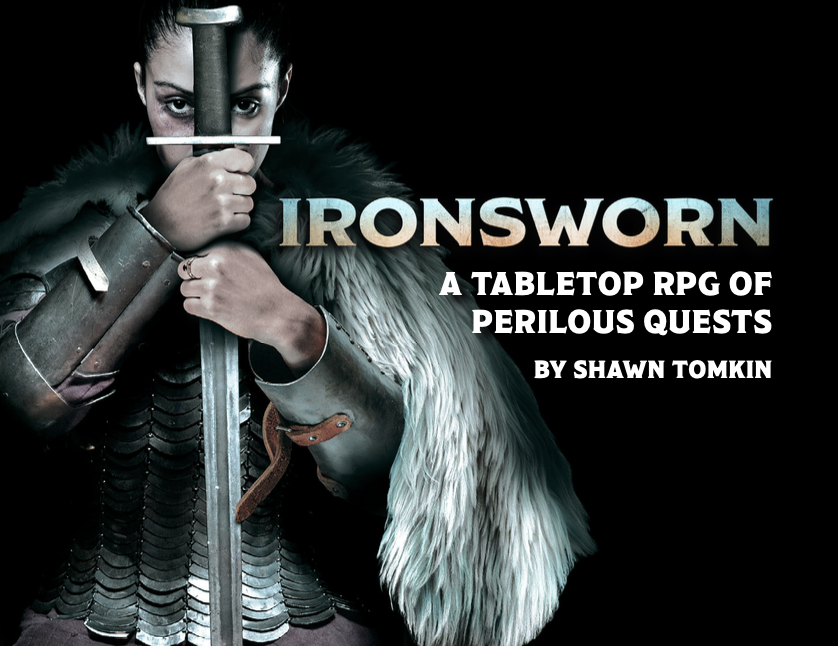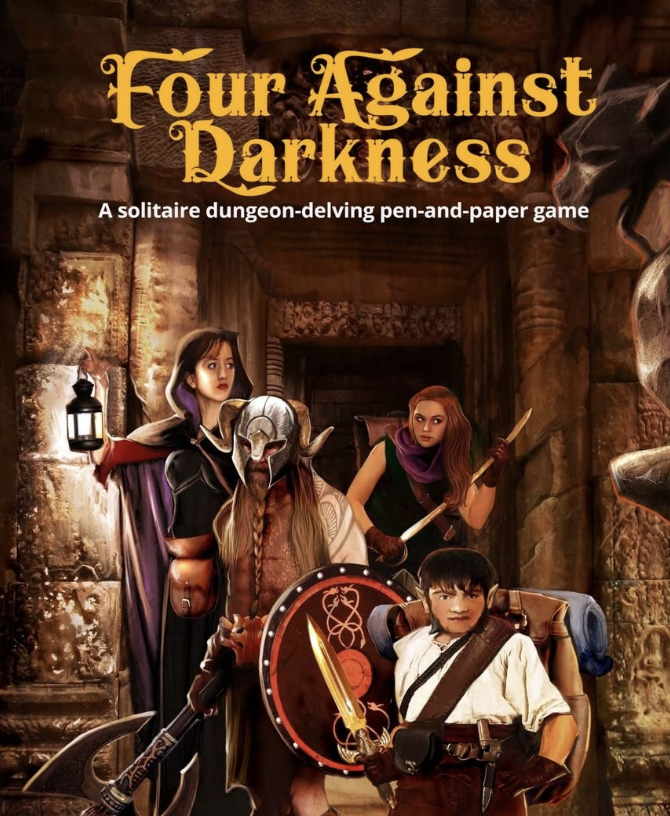Discover the ultimate guide to solo roleplaying games in 2024! Explore different game systems, essential tips for solo play, and top recommended games. Whether you’re a beginner or a seasoned player, this comprehensive guide has everything you need to dive into solo RPGs.
Introduction
Welcome to the ultimate guide to solo roleplaying games! Are you ready to embark on epic adventures on your own terms? Solo RPGs offer limitless creativity and immersive storytelling experiences. From mastering complex game systems to uncovering hidden gems, solo play opens doors to new worlds and narratives. Whether you’re a tabletop enthusiast or a curious newcomer, this guide will equip you with the tools and insights to make your solo gaming journey unforgettable. Let’s dive in and explore the fascinating realm of solo roleplaying games!
Solo Roll Adventure
1. Understanding Solo Roleplaying Games
- Overview of solo RPG gameplay mechanics
- Character Creation, Randomization, Prompt Systems, World Building, Decision Making, Journaling, Conflict Resolution, Progression and Rewards, Closure Mechanisms and Solo Tools and Resources
- Benefits of playing solo RPGs
- Sometimes, when you create a character, you might like to know him a bit better, before using him with a bigger Group. Maybe you would like to see how he will react in a certain situation or how his Weapons or Spells work.
- Sometimes, you just want to start an Adventure with a blank space, maybe not always following the rules for the games, or backtracking when making a wrong decision.
- Or, you might have constructed a new World, a City, a Kingdom and you want to test, if everything works the way you would like.
- Either way, playing a Solo Roll Adventure is always a lot of fun.

2. Essential Tips for Solo Play
- Setting up solo RPG sessions effectively
- **Set the Mood**: Create an immersive atmosphere by finding a quiet space, playing music that fits the theme, or using props. This can enhance your experience and help you get into character.
- **Embrace Flexibility**: Solo RPGs often rely on improvisation. Be open to unexpected outcomes and allow your story to evolve naturally. Don’t be afraid to diverge from planned narratives.
- **Keep a Journal**: Document your adventures, character thoughts, and decisions. This not only helps you remember details but also enriches your storytelling by creating a narrative record.
- **Use Randomization Wisely**: Leverage dice rolls, cards, or tables to introduce unpredictability. However, feel free to modify outcomes if they don’t fit your vision for the story or if they lead to uninteresting scenarios.
- **Engage with Your Character**: Dive deep into your character’s motivations, desires, and flaws. Role-playing their thoughts and emotions can make the experience more engaging and personal.
- **Set Goals and Challenges**: Establish clear objectives for your character, whether they’re short-term or long-term. Challenges can provide direction and purpose to your gameplay.
- **Take Breaks**: Solo play can be intense, and it’s easy to become fatigued. Take breaks to reflect on your story, recharge, and keep the experience enjoyable.
- **Explore Different Styles**: Don’t hesitate to experiment with various genres or styles of play. Whether it’s fantasy, sci-fi, or horror, trying out different themes can keep things fresh and exciting.
- **Use Prompts and Inspirations**: If you find yourself stuck, utilize prompts, story hooks, or even inspiration from books, movies, or other media to spark creativity.
- **Establish a Routine**: If you plan to play regularly, create a routine that works for you. Consistency can help you stay connected to your story and character.
- **Incorporate NPCs and Factions**: Even in solo play, you can introduce non-player characters (NPCs) and factions that your character interacts with. This can add depth to the world and create opportunities for conflict and alliance.
- **Reflect on Your Play**: After sessions, take a moment to think about what worked well and what didn’t. This reflection can help you improve your gameplay and deepen your understanding of your character.
- **Utilize Online Resources**: There are many online communities, forums, and tools dedicated to solo RPGs. Engaging with these resources can provide inspiration, tips, and a sense of connection to other players.
- **Have Fun**: Ultimately, the goal of solo RPGs is to enjoy yourself. Focus on the aspects of the game that you find most enjoyable, whether it’s storytelling, character development, or world-building.

3. Exploring Different Solo RPG Systems
In recent years, solo role-playing games (RPGs) have gained significant traction, allowing players to embark on adventures without the need for a game master or other players. These systems offer a unique blend of storytelling, improvisation, and character development, catering to those who enjoy solitary exploration of vast worlds and intricate narratives. In this blog post, we’ll take a deep dive into some popular solo RPG systems, highlighting their mechanics, themes, and unique features.
1. Mythic RPG
Overview: Mythic RPG is a versatile solo RPG system that allows players to create and explore their own stories in a wide variety of settings. Originally designed as a supplement for other RPGs, it has gained popularity as a standalone game that emphasizes narrative-driven gameplay.
Key Mechanics:
- Action Resolution: Mythic uses a simple action resolution mechanic, where players roll a percentile dice to determine the success or failure of their character’s actions, guided by a series of tables.
- Event Control: One of the standout features of Mythic is its Event Control system. Players can pose questions about the unfolding narrative, and the game provides randomized answers to help guide the story’s direction.
- Plot Points: Players utilize Plot Points to introduce new elements into the story, such as characters, locations, or events, adding depth and complexity to their adventures.
- Themes: Mythic RPG is highly adaptable, making it suitable for various genres, including fantasy, sci-fi, horror, and more. Players can craft epic tales or intimate character-driven stories, making it a flexible choice for solo adventurers.

Click on the Picture or the button below to get your Copy of Mythic. It is an awesome tool for Solo Roleplaying beginners
2. Ironsworn
Overview: Ironsworn is a solo RPG designed for creating gritty, character-driven narratives set in a dark fantasy world. Players take on the role of sworn adventurers, undertaking quests and facing challenges in a perilous land.
Key Mechanics:
- Vows: Central to the gameplay are Vows, which are goals or quests that the player’s character undertakes. These can be made into “Sworn” Vows (major quests) or “Legacy” Vows (personal goals), providing a clear framework for the character’s motivations.
- Oracles: Ironsworn features an Oracle system that guides players through decision-making and narrative choices. These tables help generate plot twists, NPCs, and other story elements, enriching the gameplay experience.
- Challenge Resolution: Players use a straightforward dice resolution mechanic, rolling two six-sided dice to determine the outcomes of their actions based on the character’s abilities and the difficulty of the task.
- Themes: Ironsworn emphasizes themes of honor, struggle, and personal growth, making it ideal for players who enjoy deep character development set against a backdrop of danger and intrigue.
Click on the Picture or the button below to get your Copy of Ironsworn.
The PDF of the Game is Free, but DriveThruRPG also has Softcover and Hardcover Books.

3. Solo Adventurer’s Toolbox
Overview: The Solo Adventurer’s Toolbox is a unique solo RPG Kit that blends Random Tables with a narrative storytelling experience. Players work their way through Life Events, Story Events, Quests, and Monsters
Key Mechanics:
- Checks and Events: Players can use the Skill Checks Table, and work the Prompt into the Story. Life Events can happen at any moment. Roll them each morning and see what happens.
- Adjust Monster Difficulty: Do you sometimes have a Problem that your Monsters are too easy or too hard to defeat? The Toolbox has a perfect solution for that. Use the Converter to find out what type of Monster you need for your next fight.
- Element Roll: Adventurer’s Toolbox 2 put out an Element Roll System. By Rolling 6 d12 of different Colors you can come up with Monsters, Clues, Environment, NPC, Treasures, and Events in 1 Roll. Giving you a unique Setting for every Adventure Day.
- NPC: Roll up NPC on the Spot with the NPC-Generator. Giving everyone a random uniqueness without having to think about it too long.
4. Four Against Darkness
Overview: Four Against Darkness is a solo dungeon-crawling RPG that allows players to create a party of adventurers and explore procedurally generated dungeons filled with monsters, treasures, and traps.
Key Mechanics:
- Character Creation: Players create a party of up to four characters, each with unique abilities and roles, using a simple point allocation system.
- Dungeon Generation: The game includes tables for generating dungeons, monsters, and loot, providing endless replayability as players can experience different adventures each time.
- Combat and Exploration: Players engage in turn-based combat, exploring dungeons, encountering enemies, and making strategic decisions about their party’s actions.
- Themes: Four Against Darkness embraces classic fantasy themes, allowing players to immerse themselves in a nostalgic dungeon-crawling experience reminiscent of old-school tabletop RPGs.
4. Advanced Strategies and Challenges
Advanced Strategies and Challenges in Solo RPGs
Solo role-playing games (RPGs) provide a unique playground for creativity and storytelling, allowing players to immerse themselves in their narratives without the need for a game master or other participants. However, while solo RPGs can be incredibly rewarding, they also come with their own set of challenges and require advanced strategies to enhance the experience. In this blog post, we’ll explore effective techniques for overcoming challenges in solo RPGs, advanced storytelling methods, and how to create custom adventures and campaigns.
Overcoming Challenges in Solo RPGs
- 1. Combatting Loneliness and Motivation
One of the primary challenges of solo RPGs is the potential for loneliness. Without other players to share the experience, it can be easy to lose motivation. To combat this:
Set Clear Goals: Establish specific objectives for your character, whether they be personal quests, overarching story arcs, or character development milestones. This clarity can keep you focused and engaged.
Establish a Routine: Schedule regular solo sessions to create consistency in your gameplay. Having a set time to play can help build a habit and maintain your interest.
Join Online Communities: Engage with online forums, social media groups, or Discord servers dedicated to solo RPGs. Sharing your experiences and learning from others can rekindle your enthusiasm.
- 2. Managing Complexity
Solo RPGs often involve intricate mechanics and world-building, which can become overwhelming. To manage this complexity:
Start Small: If you’re new to a particular system or genre, begin with shorter adventures or simpler mechanics to ease yourself into the experience. This allows you to gradually build your understanding without feeling swamped.
Use Templates: Many solo RPGs provide templates for character creation, quests, or world-building. Utilize these templates to streamline your process and focus on storytelling rather than getting bogged down in mechanics.
- 3. Handling Decision Fatigue
Players may experience decision fatigue when faced with numerous choices in their narrative. To alleviate this:
Limit Choices: When generating plot points or character actions, restrict yourself to a certain number of options. This can simplify decision-making and keep the flow of the game moving.
Embrace Randomization: Use random tables or dice rolls to determine outcomes for certain situations. This adds an element of surprise and can relieve the burden of making every choice deliberately.
Advanced Storytelling Techniques and Character Development
- 1. Deepen Character Backstories
In solo RPGs, character development is crucial for immersive storytelling. Consider these techniques:
Flashbacks and Memories: Incorporate flashbacks or memories that reveal your character’s past, motivations, and relationships. This can add layers to your character and create emotional stakes in the narrative.
Character Arcs: Plan a character arc that allows your character to grow throughout the story. Whether they start as a reluctant hero or a vengeful anti-hero, tracking their development can create a compelling narrative.
- 2. Narrative Devices
Utilize advanced storytelling techniques to enrich your solo RPG experience:
Unreliable Narrators: Play with the concept of an unreliable narrator, where your character might not fully grasp the reality of their situation or may have biases affecting their perspective. This can lead to intriguing twists in the plot.
Thematic Elements: Identify and weave thematic elements throughout your story, such as redemption, sacrifice, or identity. This can create a cohesive narrative that resonates on a deeper level.
- 3. Complex Plot Structures
Experiment with different plot structures to create more engaging narratives:
Non-linear Storytelling: Consider a non-linear approach, where events don’t unfold chronologically. Use flashbacks, foreshadowing, or parallel storylines to keep the narrative dynamic.
Multiple Perspectives: If your RPG allows for it, introduce multiple perspectives or subplots that intersect with your main storyline. This can enrich your narrative and provide a broader view of the world.
Creating Custom Adventures and Campaigns
- 1. World-Building
Building a rich and immersive world is essential for custom adventures:
Use World-Building Tools: Many solo RPGs have built-in world-building tools or tables. Leverage these resources to create unique settings, cultures, and histories that enhance your story.
Incorporate Real-World Influences: Draw inspiration from mythology, history, or literature to create a more compelling world. Blending elements from various sources can lead to unexpected and original settings.
- 2. Crafting Engaging Quests
When designing custom adventures, consider the following:
Quest Structure: Create a clear structure for your quests, including hooks, challenges, and resolutions. Ensure that each quest has a logical flow that keeps players engaged.
Dynamic Encounters: Design encounters that are not solely combat-focused. Include puzzles, moral dilemmas, or social interactions that require players to think creatively and engage with the world.
- 3. Iterative Development
Develop your adventures iteratively rather than trying to craft a perfect campaign from the outset:
Playtest and Adjust: As you play through your custom adventures, take notes on what works and what doesn’t. Be willing to adjust your plans based on the outcomes of your sessions.
Expand Gradually: Start with a single adventure or a small area of your world and expand outward as your narrative unfolds. This allows for organic growth and helps prevent the feeling of being overwhelmed
Conclusion
Congratulations! You’ve now mastered the essentials of solo roleplaying games. Whether you’re exploring vast dungeons or unraveling mysterious plots, solo RPGs offer boundless opportunities for adventure and creativity. Remember, the journey doesn’t end here—continue to explore new games, refine your storytelling skills, and share your experiences with fellow gamers. Embrace the power of solo play and embark on your next epic quest today!
| Affiliate Disclaimer |
| Hi there! It is my goal to be completely transparent with you both here and within our community, and so I want to let you know that certain products and links to these products on this site are affiliate links. What are affiliate links? Essentially, when you click on one of those links and make a purchase, I will earn a small commission at absolutely no extra cost to you. |




